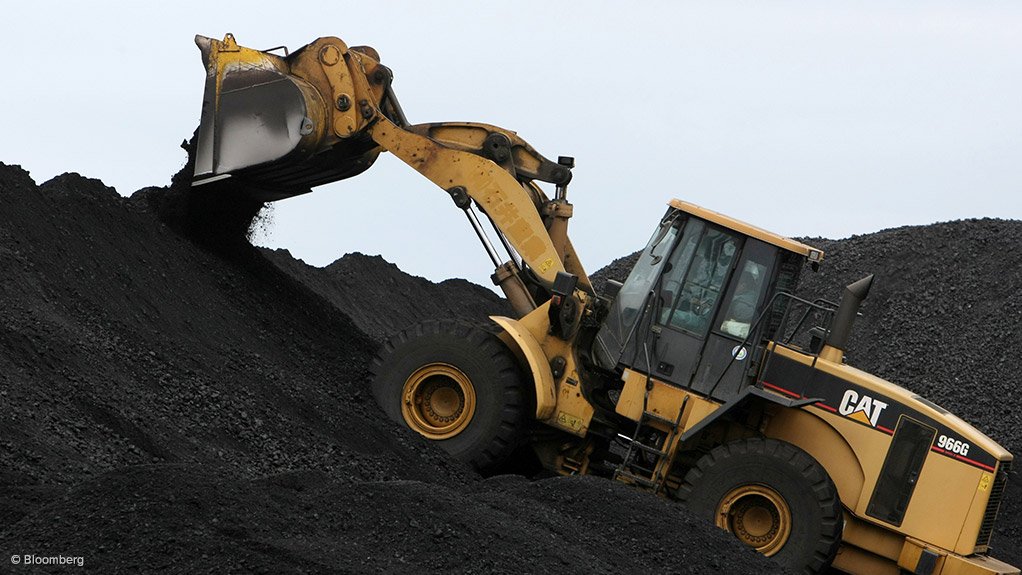The National Energy Regulator (Nersa) wants to determine a coal benchmark cost - an average rand/tonne cost of coal - as part of its final decision on Eskom's multi-year price determination (MYPD) process.
Nersa proposes that this coal benchmark cost it determines would then be used for comparison with the actual cost of coal for determining pass-through costs for Eskom's regulatory clearing account (RCA).
In Nersa's view, an increase in the rand/tonne unit cost from reduced production at the mines should then not be recovered from electricity customers for the first two years of the MYPD period unless the volumes reduction is caused by events beyond the control of Eskom or the mine.
If a coal supplier fails to deliver coal of the required quality, then Nersa wants Eskom to apply penalty mechanisms in their coal contracts to recover additional costs incurred in implementing remedies to arrive at the desired coal quality. Nersa wants no such additional costs to be recovered from the electricity consumer.
The MYPD methodology was first introduced in 2006 and was developed for the regulation of Eskom’s required revenues. It forms the basis on which Nersa will evaluate the price adjustment applications received from Eskom. The aim was, among others, to ensure Eskom’s sustainability, while providing incentives for new investment and to ensure reasonable tariff stability.
For the past couple of years Eskom has submitted large RCA claims.
Nersa's new proposals form part of a review of the MYPD process Nersa has embarked on. It has called for stakeholder feedback and hopes to finalise the review by June 28 2016. While Eskom's challenges cannot be resolved overnight, Nersa said it wants to be sure of a number of issues when evaluating coal costs as part of the MYPD methodology.
Overall, Nersa wants to achieve a high level of transparency and reliability, relevance and objective realignment in the process in order to make it "more relevant to today’s reality".
Nersa said it has the responsibility of ensuring sustainability of electricity supply in SA, balanced with the need to ensure affordability of electricity.
Nersa wants Eskom to bear the sole risk of ensuring that coal suppliers meet their obligations in terms of coal supply contracts so that the respective power stations have sufficient coal for the duration of the coal supply contract.
Therfore, Nersa wants Eskom to submit a coal procurement plan linked to the production plan along with its MYPD application.
"Eskom must obtain confirmation of 100% availability of required coal quantities, unit cost (R/tonne), coal quality including calorific value and the supply thereof and regimes to manage any shortfalls in respect of such quantities," according to the Nersa proposals.
"These quantities must be confirmed at least three (or equal to MYPD period and production plan for the period) years ahead of actual usage. No coal shall be procured without a signed contract so as to avoid additional costs related to coal spot purchases."
If Eskom anticipates any force majeure event or unforeseeable conduct regarding coal supply, Nersa would like this to be included in the MYPD application.
Diesel costs
For the sake of clarity, Nersa also proposes new rules relating to open cycle gas turbines (OCGTs), because of the high cost of diesel to run these.
In the recent past OCGT utilisation has increased by up to three times more than planned. This has led to an escalation of primary energy costs that can be passed on to the electricity consumer.
In Nersa's view, the problem with the current methodology is that it is not comprehensive enough in defining the prudent use of OCGTs and there are no explicit guidelines for the dispatch of OCGTs in relation to other cheaper options.
The methodology is, furthermore, not explicit in the handling of exports, imports, pumping water for pumped storage plants, demand market participation as well as maintenance strategies that treat their generation as available generation and not emergency generation.
Nersa now proposes that, gas turbine generation cost will be allowed as a full pass-through cost, but limited to volumes allowed by the regulator, except where such use is necessary to ensure security of supply due to force majeure (chance or unavoidable) events.
Price variances due to higher than projected diesel prices would be allowed as a pass-through, but limited according to a set equation. A full pass-through cost will be allowed, however, where there are variances as a result of fluctuations in the unit cost of fuel.
Maintenance
Nersa also wants Eskom to ensure that plant performance projections are as accurate as possible. It proposes that deterioration in plant performance should result in penalties relative to the revenue that would have been generated from the lost energy.
Nersa said the new section of quality and efficiency of maintenance has been included in its proposals, because, due to poor plant maintenance over the past five years, Eskom’s coal fleet performance has deteriorated by more than 10%.
Other proposals made by Nersa regarding changes to Eskom's MYPD process, include the determination of transport costs, meeting deadlines to migrate from road to rail, and how to deal with Eskom's current under-forecasting of independent power producer (IPP) costs.
EMAIL THIS ARTICLE SAVE THIS ARTICLE
To subscribe email subscriptions@creamermedia.co.za or click here
To advertise email advertising@creamermedia.co.za or click here











